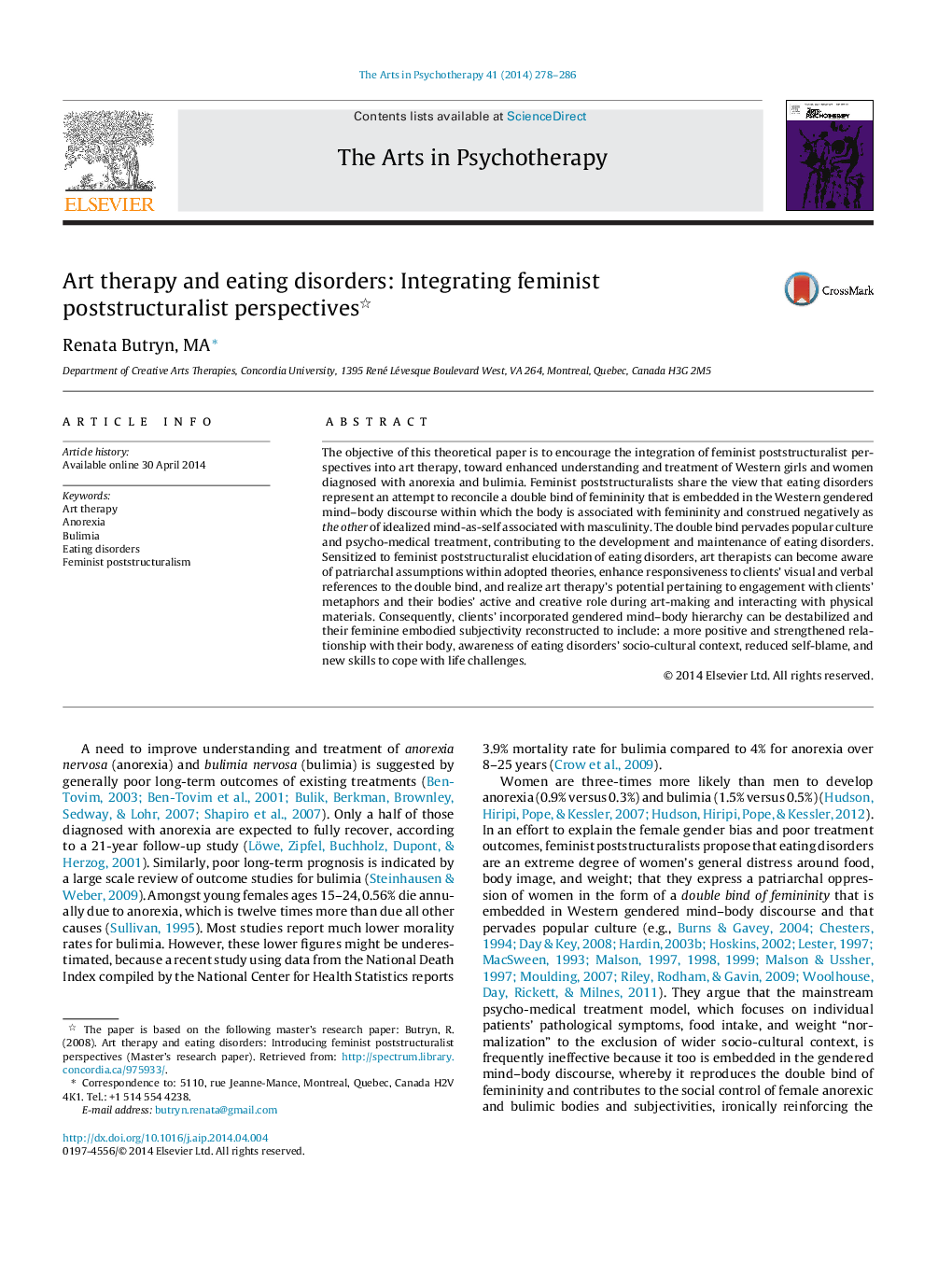| کد مقاله | کد نشریه | سال انتشار | مقاله انگلیسی | نسخه تمام متن |
|---|---|---|---|---|
| 343590 | 617187 | 2014 | 9 صفحه PDF | دانلود رایگان |
• Feminist poststructuralists link eating disorders to a double bind of femininity.
• The double bind of femininity is embedded in Western gendered mind–body discourse.
• The feminist poststructuralist view sensitizes art therapists to the double bind.
• Visual, creative, embodied therapy can subvert the gendered mind–body hierarchy.
• Art therapy can reconstruct and empower clients’ feminine embodied subjectivity.
The objective of this theoretical paper is to encourage the integration of feminist poststructuralist perspectives into art therapy, toward enhanced understanding and treatment of Western girls and women diagnosed with anorexia and bulimia. Feminist poststructuralists share the view that eating disorders represent an attempt to reconcile a double bind of femininity that is embedded in the Western gendered mind–body discourse within which the body is associated with femininity and construed negatively as the other of idealized mind-as-self associated with masculinity. The double bind pervades popular culture and psycho-medical treatment, contributing to the development and maintenance of eating disorders. Sensitized to feminist poststructuralist elucidation of eating disorders, art therapists can become aware of patriarchal assumptions within adopted theories, enhance responsiveness to clients’ visual and verbal references to the double bind, and realize art therapy's potential pertaining to engagement with clients’ metaphors and their bodies’ active and creative role during art-making and interacting with physical materials. Consequently, clients’ incorporated gendered mind–body hierarchy can be destabilized and their feminine embodied subjectivity reconstructed to include: a more positive and strengthened relationship with their body, awareness of eating disorders’ socio-cultural context, reduced self-blame, and new skills to cope with life challenges.
Journal: The Arts in Psychotherapy - Volume 41, Issue 3, July 2014, Pages 278–286
